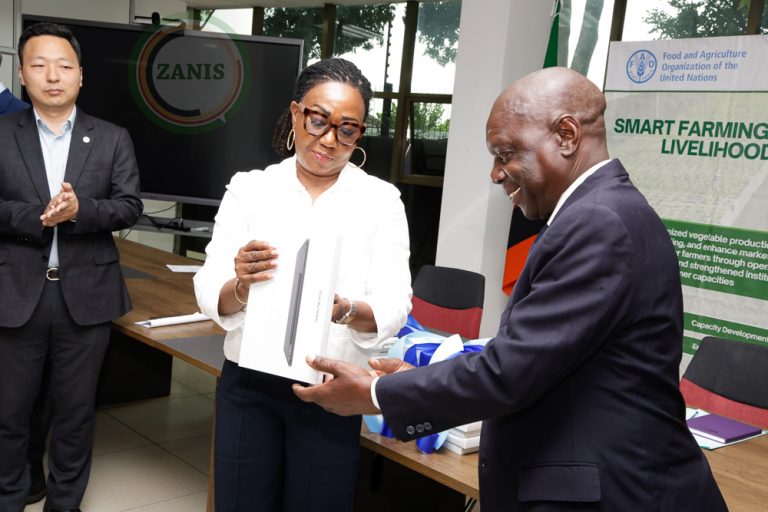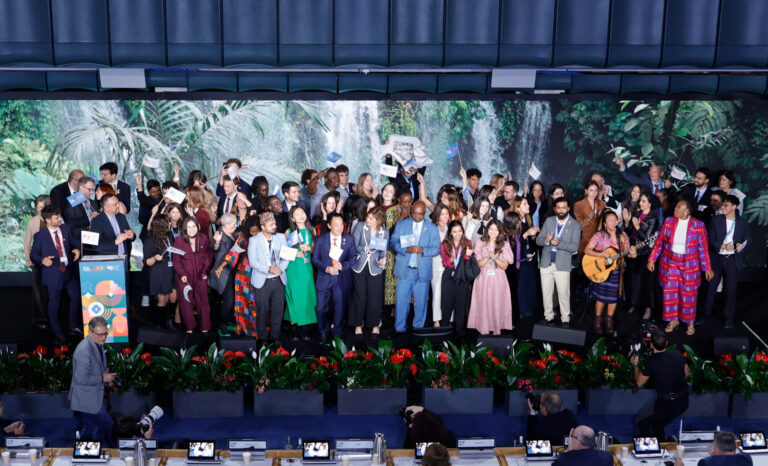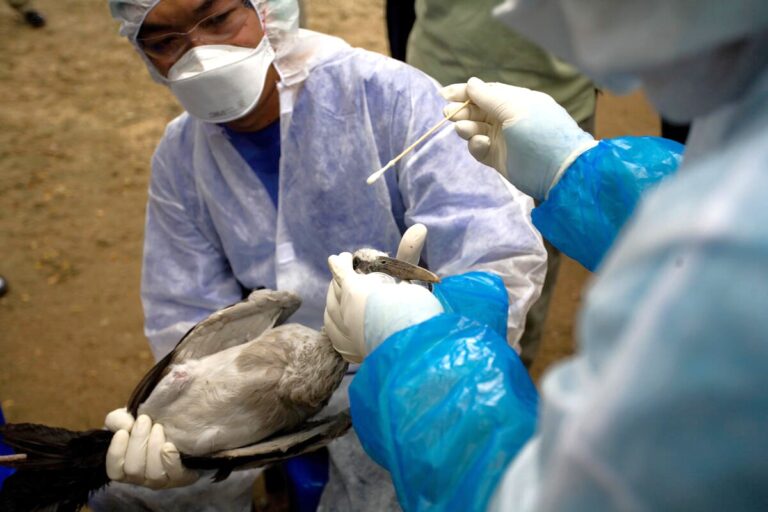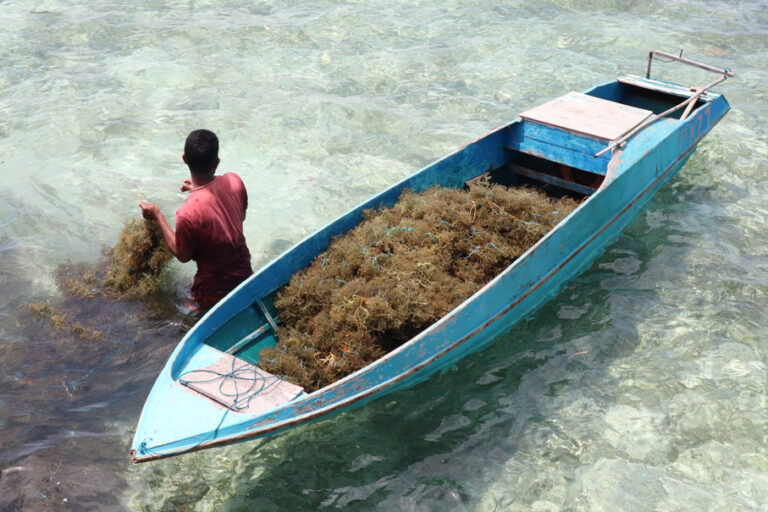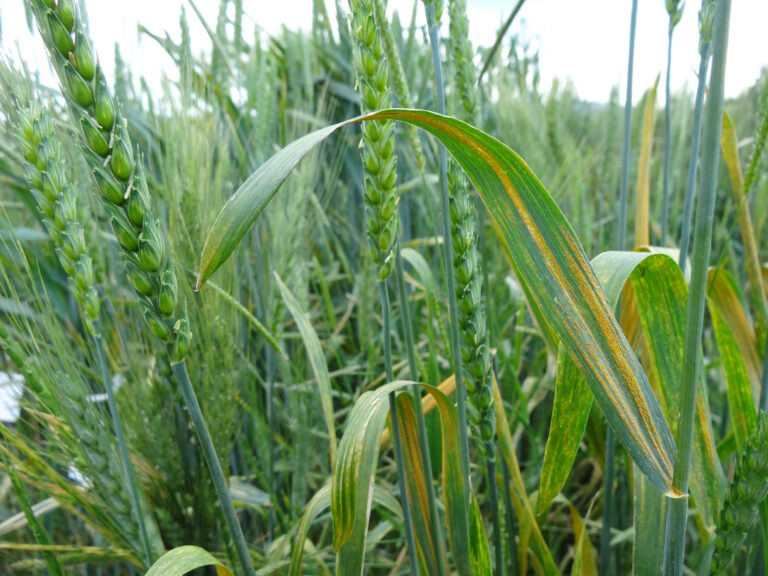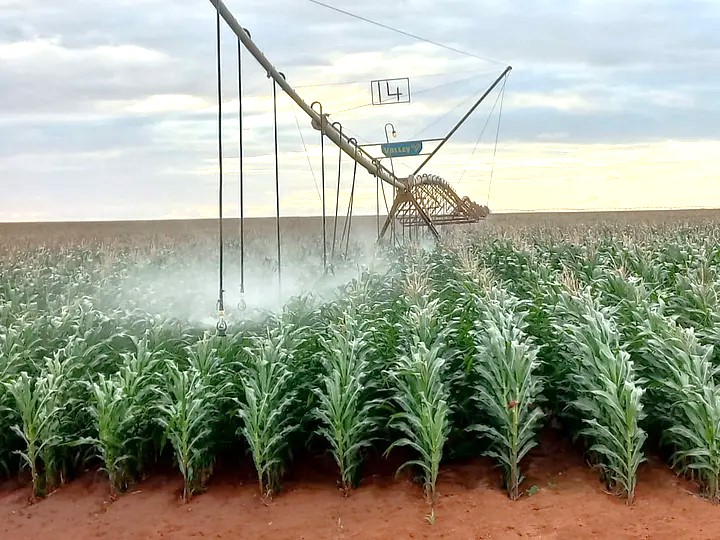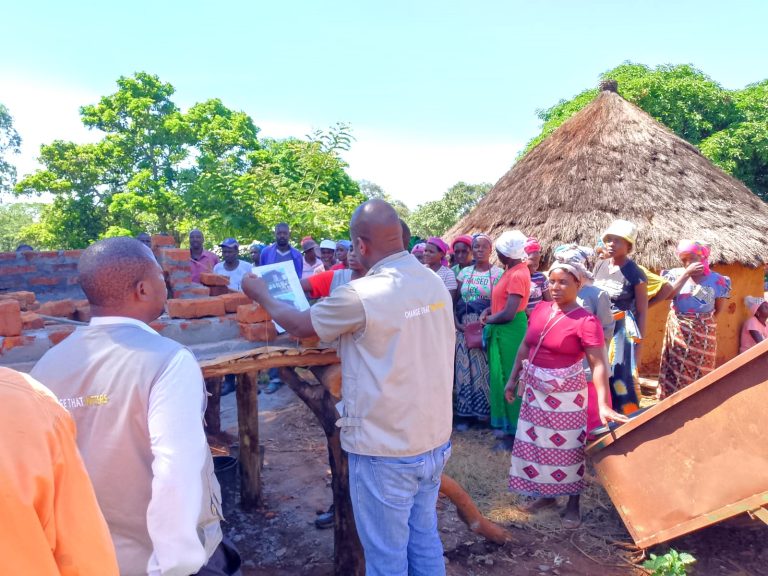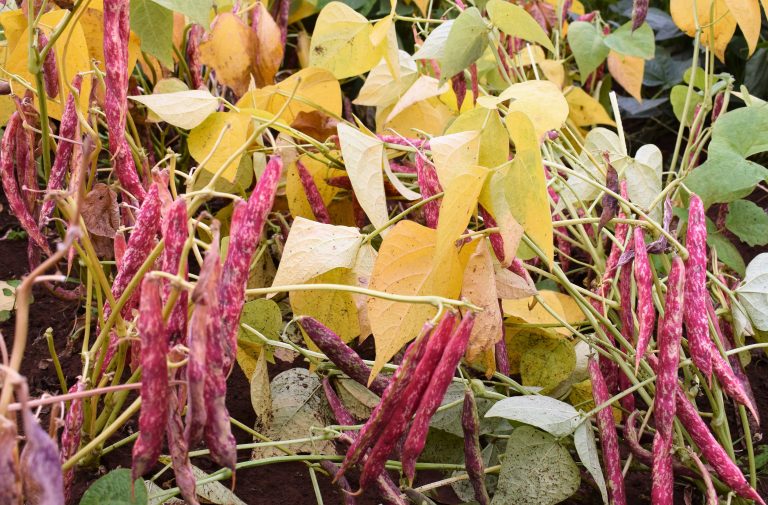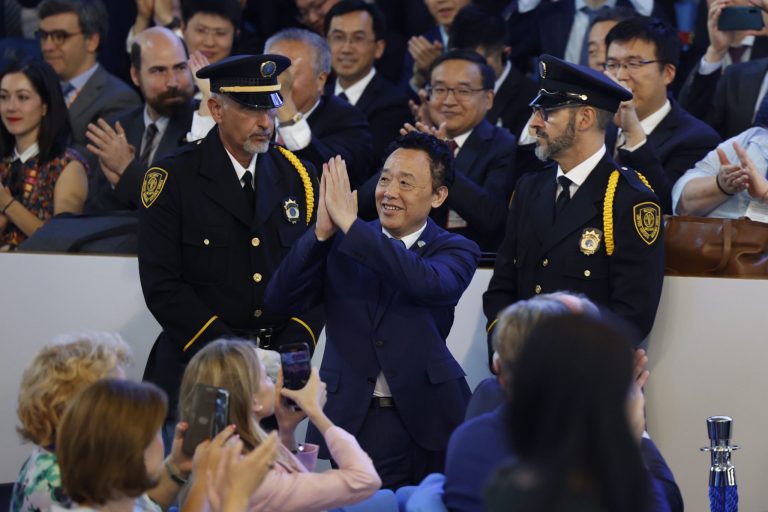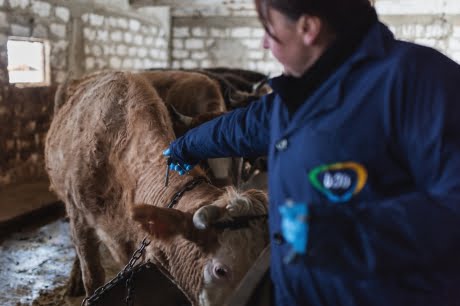In South Sudan, livestock means life. As South Sudanese herders put it: here, cattle can chase away hunger.
Over 65 percent of the population relies on livestock for their survival. Children grow up on milk. Families survive on meat, milk and cattle’s blood. Losing one’s cattle is like losing one’s life savings.
So, when the dry season sets in and water and grass get scarce, herders must move. They move with their families and animals – up to three, four times or more per year – in search of pasture and water.
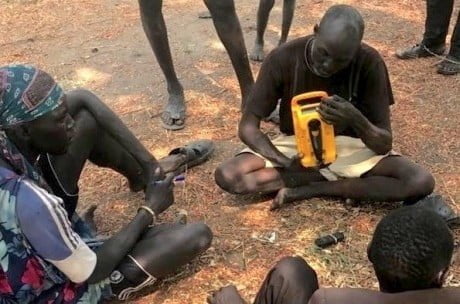
This means herders’ children can’t go to school and miss out on an education. Relying solely on their cattle to survive can also make life extremely difficult for pastoralist communities.
In 2016, FAO and UNESCO, with support from the European Union, have teamed up to roll out an educational programme in the cattle camps of Lakes and Central Equatoria states, in the centre and south of the country.
First, the two UN agencies worked with the Government of South Sudan on a curriculum, and developed training materials for teachers and manuals for students. Then, they trained community members who already had a basic education to roll out a numeracy and literacy programme and teach skills that enable herders to engage in a range of activities to meet their needs.
Cattle camp school – in classroom and via radio
The children and teenagers learn to read, write and count. A typical class goes like this.
Children sit on mats under a shady tree. Some sport bright jerseys with names of faraway football stars. Most are barefoot.
“What words start with “m”?” asks the teacher. “Milk”, “mother”, “medicine” – roll the answers. One by one, the children go to the blackboard, and chalk in hand, practice writing. The lessons are in English and Dinka (one of the main local languages).
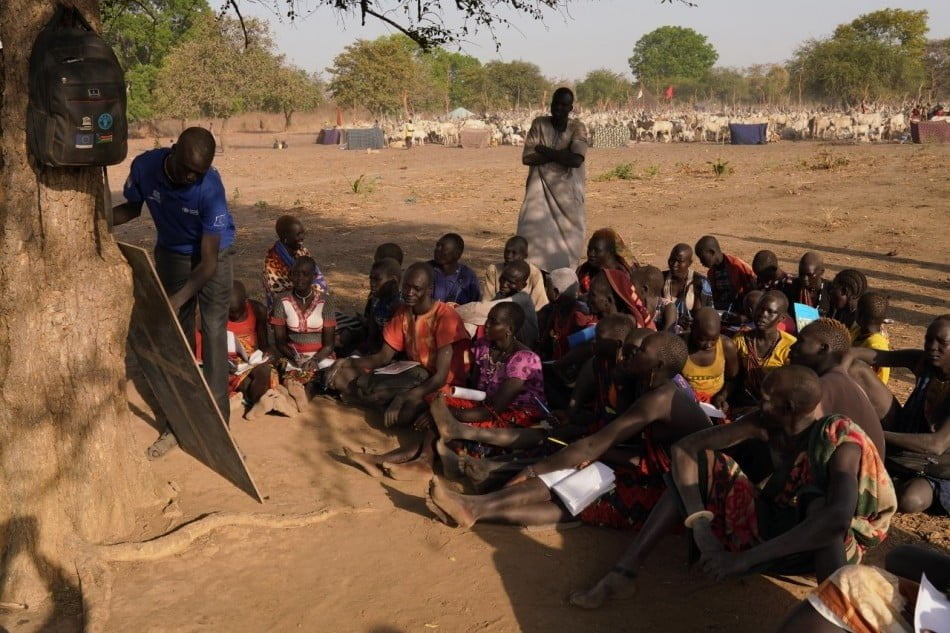
16-year-old Makimwho lives in a cattle camp outside Yirol in Lakes state says he can now “understand some of the things in my book” and can read. Having “the school” so close to the cattle camp is good, he adds, as he can keep an eye on his cows while studying.
Being educated, muses 15-year-old Puor Deng, will enable her to have “my own things” – cooking pots, a mattress and other possessions that are prized in her community.
Apart from learning in a classroom-like environment, they also learn through the radio thanks to an 18-episode programme – called “Sukul Wutic” or Cattle Camp School – created by FAO with a group of community broadcasters.
In separate outdoor classrooms, adults listen to their trainer or the voice on the radio. They learn how they can set up small businesses – for example, make and sell yoghurt or butter – and carry out activities that have nothing to do with rearing livestock – such as fishing, beekeeping or growing vegetables to eat and sell.
In one class, they might learn about animal health – how to care for their cattle to keep them strong and healthy so that they produce more milk. A recommendation could “simply” involve: crushing some animal bones, taking some clay of a termite mount and some salt, mixing them all together and feeding the paste to the animals.
In another class, they might learn about how to keep the soil around their cattle camp fertile, by leaving small branches and cattle dung on the soil, so that they can grow vegetables.
“We used to survive on wild vegetables when food was scarce, but now we have a range of vegetables to eat and we hope to sell some so we can buy other things – soap, sugar, cloth and other foods, which we don’t have,” said Achol Tiop Aleth from Nyigomkot cattle camp.
Classes during the COVID-19 pandemic
Things have changed over the last months when restrictions were imposed as herders too face the dangers of COVID-19. They can no longer sit together in big groups. Now, instead of learning about growing veggetables, they are listening on the radio to messages from FAO on COVID-19 transmission, and what they can do to protect themselves and their families.
In the meanwhile, FAO is developing a second radio series of Sukul Wutic episodes. This way, as soon as classes can fully resume, teachers will have new materials. FAO is also planning to expand the educational programme to other regions of South Sudan.
More than just education
So far, 63 community members have been trained as teachers, and over 2 000 herders and their children – 91 percent of the targeted cattle camps’ population – participated in the educational programme.
To help herders put in practice what they learnt, FAO has been providing them with vegetable seeds, farm tools, fishing kits, solar-powered water tanks, animal health kits and setting up milk bars in towns close to the cattle camps, where herders can sell their excess milk.
Children have been learning fast and making progress in their studies. The education that cattle camp schools are offering to herders’ children will increase their chances of getting emerging jobs as the country develops. A big step as over 70 percent of South Sudanese children are out of school, putting at risk their and their country’s future.
Adults have been fishing and growing vegetables, producing yoghurt, making “mandazi” (a pastry similar to doughnuts) and other products they can sell. As a result, their diets are more varied and nutritious, they can earn an additional income, and are no longer solely dependent on their cattle. Young people who have participated in the classes are less likely to engage in conflict.
And so, amongst its many benefits, through education, the project ensures peace and food security, two of the fundamentals needed most.


